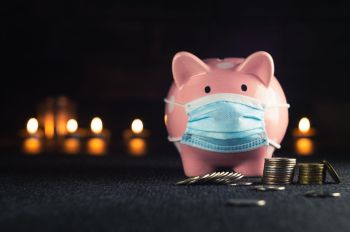
By Alma Robinette
The National Bureau of Economic Research reports that over 100,000 small businesses have permanently closed operations since the beginning of the COVID-19 global health crisis. Though the external factors leading to such widespread displacement are not within an entrepreneur’s control, good financial practices can help to mitigate damage and keep businesses stable during times of crisis.
To counter such troubling economic times, we have listed some habits entrepreneurs can build in order to maintain good financial health.
Keeping Accurate Bookkeeping Records
Record your financial transactions to get a clear picture of where revenue comes from, where spending goes, and what you will owe in tax. The transactions you need to record include your accounts payable, accounts receivable, cash, payroll, sales, inventory, and purchases.
Fortunately, you can use data organization software like Google Sheets and Microsoft Excel, through which you can streamline the process of manual record keeping. You can leverage features like automated tax calculations, expense tracking, and invoice management. For accounting software, QuickBooks, FreshBooks, and Xero provide the most flexibility. You can use their cloud-based technology to access your financial information across multiple devices, giving you more flexibility on where you can work.
Separating Personal Accounts From Business Accounts
Recording your business and personal transactions separately will give you a clearer picture of your cash flow. To make this easier, create separate bank accounts for business and personal income. In order to generate income for your personal account, allocate a place in your budget for a fixed personal salary. This also saves you time in the event of an audit, as the IRS will review your personal and business transactions separately even when your accounts are combined. The IRS also penalizes entrepreneurs referring to personal expenses as tax deductibles for business accounts.
Having a Budget for Strategic Spending
Having a good bookkeeping system in place will give you a good understanding of how much it costs to operate your business, which then gives you an accurate estimate of future costs. With that knowledge, you can create a strategic plan for how you want to allocate your spending.
Assess your situation to determine what to spend on to make your money grow, and what to cut down on to free up revenue. For example, if you run a business that offers digital services, like video editing or graphic design, your employees might not need an office, but they do need efficient computers and software. If renting an office space costs $4,000 a month, switching to a work-from-home setup can free up $48,000 a year. You can then use this to subsidize quality equipment — for reference, a MacBook Pro costs $1,300, and has an average lifespan of seven years.
Business owners can also benefit from budget management apps. Many recommend Mint for entrepreneurs, as it streamlines a lot of the strategizing process by syncing your financial accounts to track income and generate budget suggestions. It also notifies you on upcoming bills, which can be convenient for entrepreneurs who have trouble staying on top of expenses.
Choosing Where to Save
It’s best to look for account types that have high interest rates to generate more profit and protect your money from the risk of inflation. High yield savings accounts (HYSA) and certificates of deposit (CD) are two examples of account types with low barriers to entry and high interest rates. HYSAs are usually exclusive to online accounts, which might not make them ideal for entrepreneurs that want their checking accounts connected to their savings accounts. However, HYSAs often offer rates that are 20 to 25 times higher than interest rates offered at traditional savings accounts, making them more efficient at generating profit.
Meanwhile, certificates of deposit or CDs are good for growing spare revenue. Once you place money in a CD, you agree to an interest rate that remains unchanged for a fixed period of time. Disincentivizing withdrawals can help deter unnecessary spending, making CDs an ideal safekeeping method for savings. Entrepreneurs can even use a high yield CD calculator to decide on an initial deposit and term length, which will compute the interest earned on the account. For example, if you lock in $20,000 for one year, you can get around $220 in interest. Though it might not seem like much, the national average return for the same amount and term length is $62, which provides very little protection against current inflation rates.
Setting Aside Money for Growth
Investing in external sources of revenue comes with the risk of loss, but they boast high returns. Having a diverse set of revenue streams can provide stability in case your business runs into a crisis. You can place spare revenue in securities like stocks, bonds, or mutual funds, which can grow your wealth passively. For example, if you bought 100 shares of a stock that sold at $10 a share, and company growth two years later bumped the selling price to $20 a share, you could sell your shares for $2,000 and earn $1,000 in profit. You can also put money into other businesses. When you can, look to invest in assets that can help grow your operations. For example, if you work in transportation, buying more trucks can increase the number of clients you can service, which generates more profit.
Starting a business can be a good opportunity for growing your wealth and gaining financial freedom. However, high revenue gains mean little when expenses go untracked and reckless spending takes precedence over saving. Given the unpredictability of the current pandemic, it's important to build healthy habits that can help your business navigate the unexpected during times of crisis.
ABOUT THE AUTHOR
Alma Robinette is a freelance business writer. She has spent her career advising new business owners through her articles, and hopes that she has inspired many entrepreneurs to start their own company. In her free time she plays online chess